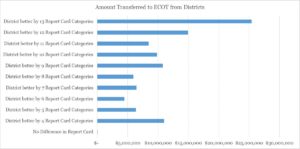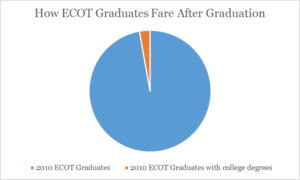What you need to know about Ohio Politics and Policy
Stephen Dyer · February 12, 2018
As ECOT Case Goes to the Supreme Court, Here’s a Primer.
Tomorrow, ECOT will argue before the Ohio Supreme Court that taxpayers should pay the school $80 million for educating kids it can’t prove it educated the last two school years. And the Ohio Department of Education will argue that taxpayers should be reimbursed for that $80 million. But beyond these simple sounding points, and the less simple minutiae explaining how kids should be counted as attending virtual schools, it’s important to recognize that this problem has existed since ECOT opened in the 2000-2001 school year. In fact, state audits found that for ECOT’s first five years, the school overbilled taxpayers for kids it couldn’t prove it actually educated. Why was this allowed to happen for 17 years? Because ECOT was protected by the school’s cheerleaders in the Ohio General Assembly and statewide offices — many of whom spoke at the school’s graduation ceremonies. One of those speakers will hear ECOT’s plea for continued taxpayer funding tomorrow — Justice Terence O’Donnell, who spent most of his 2013 commencement address telling students about a conversation he had with ECOT founder and political contributor William Lager. Does it surprise you to learn that O’Donnell is the only judge who has listened to any of ECOT’s legal arguments and agreed with ECOT? However, of the 7 current Justices, 5 — Chief Justice Maureen O’Connor, Justice Pat DeWine, Justice O’Donnell, Justice Judith French, and Justice Sharon Kennedy have received direct campaign contributions from Lager and/or ECOT related employees. That doesn’t count any of the hundreds of thousands of dollars Lager and his ECOT friends contributed to state parties and caucuses. To her credit, Justice Judith French recused herself from ECOT case last year. Why did these politicians protect ECOT so vehemently? It couldn’t have been because the school was doing a good job — even the students ECOT could demonstrate it educated. According to state data from the 2016-2017 school year, every penny sent from a school district to ECOT last year (which was more than $100 million) came from a district that outperformed the online giant by at least 4 of 13 state report card categories. And an astonishing 1 out of every 4 dollars sent to ECOT came from a district that outperformed ECOT on every comparable measure. This is not to say there weren’t success stories at ECOT. There were. But in the vast, overwhelming majority of cases, ECOT simply did not provide a better academic option for students than the districts they left.
And while they did graduate large numbers of students, they failed to graduate about twice as many as they actually graduated. One telling metric of their meaningful, long-term impact on kids is how many ECOT graduates had a college degree within six years of graduation.
This is not to say there weren’t success stories at ECOT. There were. But in the vast, overwhelming majority of cases, ECOT simply did not provide a better academic option for students than the districts they left.
And while they did graduate large numbers of students, they failed to graduate about twice as many as they actually graduated. One telling metric of their meaningful, long-term impact on kids is how many ECOT graduates had a college degree within six years of graduation.
 When coupled with the fact that ECOT was charging taxpayers tens of millions of dollars to educate kids that never participated in learning at the school, it’s clear that this school was not living up to expectations academically or financially.
As we wrote last week, ECOT has generally not performed well on state metrics and have been unable to account for the children’s learning experiences, but they have been protected by powerful friends in the Ohio General Assembly and state government who benefited from ECOT founder Bill Lager’s political largess.
And now the Supreme Court will decide, essentially, whether the school should be paid for educating kids it can’t prove it educated and therefore remain open forever.
We will keep you posted throughout the day tomorrow as news trickles in about the hearing.
When coupled with the fact that ECOT was charging taxpayers tens of millions of dollars to educate kids that never participated in learning at the school, it’s clear that this school was not living up to expectations academically or financially.
As we wrote last week, ECOT has generally not performed well on state metrics and have been unable to account for the children’s learning experiences, but they have been protected by powerful friends in the Ohio General Assembly and state government who benefited from ECOT founder Bill Lager’s political largess.
And now the Supreme Court will decide, essentially, whether the school should be paid for educating kids it can’t prove it educated and therefore remain open forever.
We will keep you posted throughout the day tomorrow as news trickles in about the hearing.
Tagged in these Policy Areas: K-12 Education


